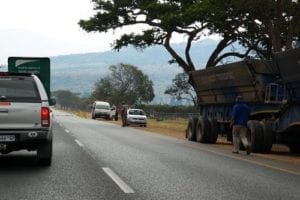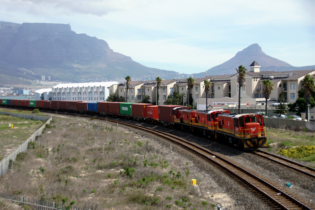Truck hijackings have risen 29.1% since 2014, according to national crime stats. Tristan Wiggill finds out, from the South African Insurance Crime Bureau (SAICB), how the industry can fight back.
According to the SAICB, truck hijackings are all about the commodities being transported. Tobacco products, for example, are currently in high demand. While the crime statistics do not indicate the purpose of the hijackings, the fact of the matter is that the majority of trucks are hijacked for their loads, with many trucks and/or trailers recovered shortly thereafter. There is great demand for certain types of trucks in neighbouring states. For instance, trucks in the 3 to 8-tonne range are wanted in Mozambique, with a number of these trucks reported stolen and recovered by Mozambican authorities. Southern African Regional Police Chiefs Cooperation Organisation (Sarpcco) operations, conducted in the SADC region, have also indicated that there are a large number of stolen and/or hijacked South African trucks in circulation in the region. These trucks are used by large transport companies and will only ever operate north of South African borders. The largest markets for these trucks – the big horse-and-trailer types – are northern Mozambique, Zambia, and Malawi. While the industry is working very closely with law enforcement, it needs to participate in strategies that have been developed and planned to prevent truck hijacking and increase the apprehension of hijackers, as well as the kingpins behind the crimes. Markets for the commodities targeted, as well as the markets for the hijacked trucks and the syndicates involved, need to be identified and addressed in conjunction with the South African Police Service. Screening drivers and properly recording their details are vital, with the percentage of actual hijackings and so-called ‘handovers’ difficult to determine. Unfortunately, the general culture of corruption in South Africa cannot be overemphasised. It is far easier and far less risky to corrupt an individual – in this case, the driver – than it is to hijack a truck.The use of foreign drivers, with no ties to South Africa, presents a problem. These drivers can simply sell trucks abroad after a dispute with their employer. Drivers need to stay alert and should not pick up hitchhikers. Hitchhikers obtain information from drivers about the nature of transported cargo, which is forwarded by text message to accomplices either following or lying in wait along the driven route.
What to do if hijacked Be observant of the vehicles, equipment, and weapons used, as well as the language spoken by the hijackers.- Be aware that criminals often use reflective jackets to impersonate some form of authority.
- Inform law enforcement immediately and ensure the vehicle is correctly circulated as soon as possible.
- Activate security details and contractors.
- Alert tracking companies.
- Have details of drivers and crew available to give to law enforcement.







